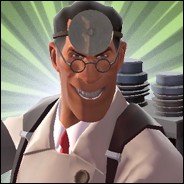For seven hundred years Oxford and Cambridge universities dominated the British education. Scotland had four universities, all founded before A. D. 1600. Wales only acquired a university in the 20th century; it consisted of four university colleges located in different cities (Cardiff, Swansea, Bangor, and Aberystwith). The first English university after Oxford and Cambridge (sometimes referred to as Oxbridge) was Durham, in the North of England, founded in 1832. The University of London was founded a few years later in 1836.During the nineteenth century institutions of higher education were founded in most of the biggest industrial towns, like Birmingham, Manchester, Leeds, Sheffield (sometimes called the Redbrick Universities). At first they did not have full university status but were known as university colleges; since 1945, however, all have become independent universities, and in recent years a number of other universities have been founded: Sussex, Essex, Warwick, and others.
In the middle 60s there was a further new development. Some of the local technical colleges maintained by local authorities had gained special prestige. By 1967 ten of these had been given charters as universities. Many of them are in the biggest cities where there were already established universities; so now we have the University of Aston (Birmingham), Salford (close to Manchester), Strathclyde (Glasgow), Herriot-Watt University (Edinburgh), Brunei University (London).When we add all these together we find that the number of universities in England increased within ten years from nineteen to thirty-six, and in Scotland from four to eight.Oxford university is a federation of colleges, and it is impossible to understand its structure unless one first understands the nature and function of these colleges, which have no resemblance whatever with the institutions called "colleges" in America.Oxford has twenty-three ordinary colleges for men, five for women. All these are parallel institutions, and none of them is connected with any particular field of study. No matter what subject a student proposes to study he may study at any of the men's colleges.Each college has a physical existence in the shape of a dining-hall, chapel, and residential rooms (enough to accommodate about half the student membership, the rest living in lodgings in the town). It is governed by its Fellows (commonly called "dons"), of whom there are usually about twenty or thirty. The dons are also responsible for teaching the students of the college through the tutorial system. The Fellows elect the Head of the college (whose title varies from college to college).The colleges vary very much in size and extent of grounds and buildings.Colleges choose their own students, and a student only becomes a member of the University by having been accepted by a college. Students are chosen mainly on academic merit, but the policy of colleges in this respect varies from college to college. Some tend to be rather keen to admit a few men who are very good at rugby or some other sport, or sons of former students or of lords, or of eminent citizens, or of millionaires.The colleges and university buildings are scattered about the town, mostly in the central area, though the scientific laboratories and the women's colleges are quite a long way out.The university teachers are mostly Fellows of colleges, who may at the same time hold university appointments as lecturers or professors. Part of the teaching is by means of lectures and any student- may attend any university lecture. At the beginning of each term (there are three terms in the Oxford academic year) a list is published showing all the lectures being given during the term within each faculty, and every student can choose which lectures he will attend, though his own college tutor will advise him which lectures seem likely to be more useful. Attendance at lectures is not compulsory, and no records of attendance are kept.Apart from lectures, teaching is by means of the "tutorial" system, which is a system of individual tuition organized by the colleges. Each Fellow in a college is tutor in his own subject to the undergraduates who are studying it. Each student goes to his tutors room once every week to read out an essay which he has written, and for an hour he and the tutor discuss the essay. A student does not necessarily go only to his own tutor but may be assigned to another don in his own college or in another college when he is studying some particular topic which is outside the special interest of his own tutor.
242
361
Ответы на вопрос:
A:
1. He's a shop worker
2. He's a teacher. He works at that school.
3. She's a waiter.
4. Не понял
5. She's a programmer.
6. She's a potographer.
7. I'm a tours guide.
B:
1. Amanda is an
actress.
2. Robert can ride a motorbike.
3. This is an old camera.
4. Jimmy is a salesperson
5. I have an orange watch
Объяснение:
В "А" должны быть "слова для справок", ф в "B" всё легко, просто перед гласной "an", а перед согласной "а".
Реши свою проблему, спроси otvet5GPT
-
Быстро
Мгновенный ответ на твой вопрос -
Точно
Бот обладает знаниями во всех сферах -
Бесплатно
Задай вопрос и получи ответ бесплатно

Популярно: Английский язык
-
1 If Maksat phones you, what (you / say) to him? 2 Dana her party...
 AlexisA03111724.07.2020 03:19
AlexisA03111724.07.2020 03:19 -
Expressing probability Rewrite the sentences. Put the words in...
 eva44478629.04.2022 19:53
eva44478629.04.2022 19:53 -
Вставьте слова в скобках в нужном вместе в предложении...
 bviktoria456704.03.2021 05:49
bviktoria456704.03.2021 05:49 -
Here is vicky’s letter to a teenage magazine. i’m writing to say...
 Kotik7778930.04.2021 06:40
Kotik7778930.04.2021 06:40 -
Прочитайте текст. определите, какие из утверждений 10––17 соответствуют...
 lenamarydina06.07.2022 09:47
lenamarydina06.07.2022 09:47 -
Переведите без 1. он сказал, что ему нравится наблюдать за китами...
 gfff225.02.2022 00:33
gfff225.02.2022 00:33 -
Agroup of tourists is discovering old places now. ( what…) two...
 Элечка555605.08.2021 17:18
Элечка555605.08.2021 17:18 -
Напишите любой рассказ 7 предложений на языке в настоящем продолженном...
 zhazi9494e30.08.2021 22:29
zhazi9494e30.08.2021 22:29 -
Task 1. Read the text below and mark the sentences as T (true)...
 Albuss29.08.2020 07:20
Albuss29.08.2020 07:20 -
Mike often ... (talk) about politics. I ... (have) lunch at the...
 sssaaa425.10.2022 19:11
sssaaa425.10.2022 19:11

Есть вопросы?
-
Как otvet5GPT работает?
otvet5GPT использует большую языковую модель вместе с базой данных GPT для обеспечения высококачественных образовательных результатов. otvet5GPT действует как доступный академический ресурс вне класса. -
Сколько это стоит?
Проект находиться на стадии тестирования и все услуги бесплатны. -
Могу ли я использовать otvet5GPT в школе?
Конечно! Нейросеть может помочь вам делать конспекты лекций, придумывать идеи в классе и многое другое! -
В чем отличия от ChatGPT?
otvet5GPT черпает академические источники из собственной базы данных и предназначен специально для студентов. otvet5GPT также адаптируется к вашему стилю письма, предоставляя ряд образовательных инструментов, предназначенных для улучшения обучения.
